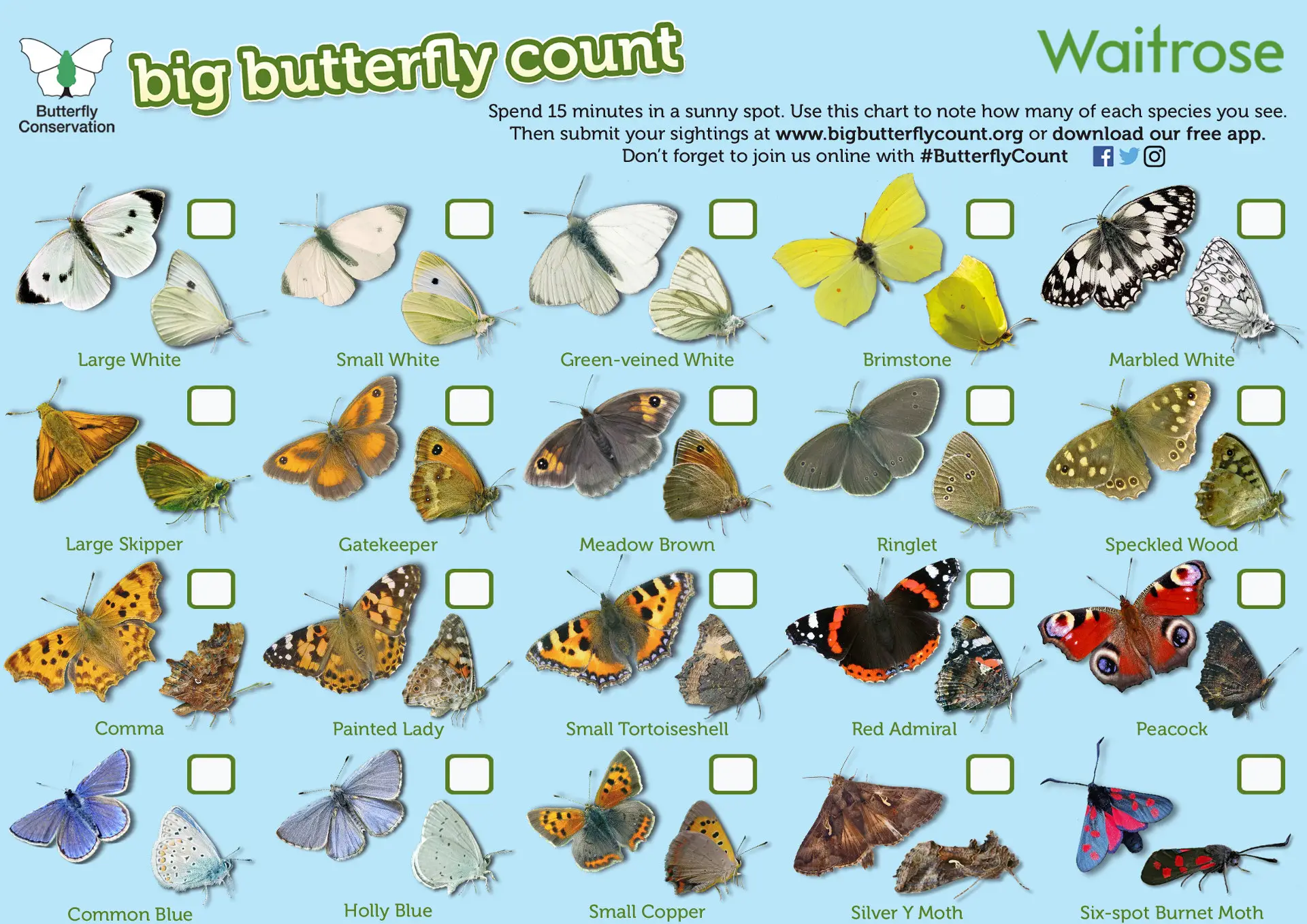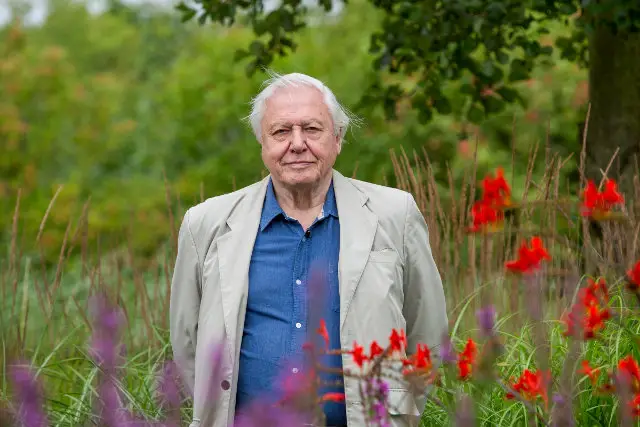Katie shares this latest news from Butterfly Conservation. Ed
Sir David Attenborough has warned that UK butterflies face a critical summer after a string of poor years has seen the numbers of many common species decline.
Last year was the fourth worst on record for butterflies and Sir David is urging people on the Isle of Wight to take part in the Big Butterfly Count survey to help reveal how widespread species are faring this summer.
Take part in the world’s largest butterfly survey
Common species such as the Small Tortoiseshell, Peacock, Meadow Brown and Gatekeeper experienced declines in 2016, but the warm, dry spring and early summer experienced over much of the UK so far this year could offer butterflies some respite if the good weather continues.
The Big Butterfly Count is the world’s largest butterfly survey, which encourages people to spot and record 18 species of common butterflies and two day-flying moths during three weeks of high summer.
Take part on the Island
A free event is taking place at Totland Bay on Friday 4 August from 10.30am.
Information on all of these and others nearby can be found on the Website.
Butterfly Conservation President, Sir David, said:
“The next few weeks are a vital period for our butterflies. They need to make the most of this chance to feed and breed.
“Last year, despite a warm summer, butterflies like the Small Tortoiseshell, Peacock, Meadow Brown and Gatekeeper saw their numbers fall as a warm winter and cold spring earlier in the year led to problems that affected their numbers later on.
“Worryingly, we are now seeing the fortunes of some of our once common butterflies mirror those of our rarest species and they too are now also suffering significant declines with butterflies declining more rapidly in urban areas than in the countryside.
“In the last decade our butterflies have experienced several poor years and although resilient, they simply cannot sustain repeated losses, especially if the habitats they need in order to rebuild their populations are also under threat.”
Declines over last 40 years
More than three-quarters of the UK’s butterflies have declined in the last 40 years with some common species, such as the Small Tortoiseshell, suffering significant slumps.
This year’s Count follows new findings that butterflies are declining more rapidly in urban areas than in the countryside.
As many Big Butterfly Counts take place in gardens, parks and urban green space, this year’s results from these habitats will help inform conservationists on how to make our urban landscapes more butterfly-friendly.
Richard Fox, Butterfly Conservation Head of Recording said:
“With increasing numbers of our common and widespread butterflies in long-term decline, Big Butterfly Count is more important than ever. Simply taking 15 minutes out of your normal day to enjoy the sunshine and count butterflies can help us monitor their populations. It’s a win-win for wildlife.”
Sir David added:
“Taking part in the Big Butterfly Count is good for butterflies and it is also good for us all. The Count is good for butterflies because your sightings will tell us which species need help and in which areas we need to help them.
“But the Big Butterfly Count is also good for you because 15 minutes spent watching butterflies in the summer sunshine is priceless; spending time with butterflies lifts the spirits and reinvigorates that sense of wonder in the natural world.”
https://youtu.be/a58ds4yEze4
Pollinators play fundamental role
The Big Butterfly Count is sponsored by Waitrose. Tor Harris, Waitrose Head of Sustainability and Responsible Sourcing, said:
“We recognise the fundamental role pollinators play in the production of food and are committed to supporting their future which is why we’re delighted to be sponsoring the Big Butterfly Count for the second year and helping grow this important event.”
The Count runs from 14 July to 6 August. Taking part in the Count is easy – find a sunny spot and spend 15 minutes counting the butterflies you see and then submit sightings online or via the free Big Butterfly Count app.
The Big Butterfly Count is being launched at the Wildfowl and Wetlands Trust (WWT) London Wetland Centre.
WWT Chief Executive Martin Spray CBE said:
“Butterfly spotting brings great immediate rewards. You get to see beautiful little animals, and by counting butterflies you can help them too. It’s a great activity for families getting outside on a summer’s day. That’s why we’re giving out spotter sheets at all our wetland centres across the UK.”
Click on image to see larger version

Image: © Helen Atkinson





